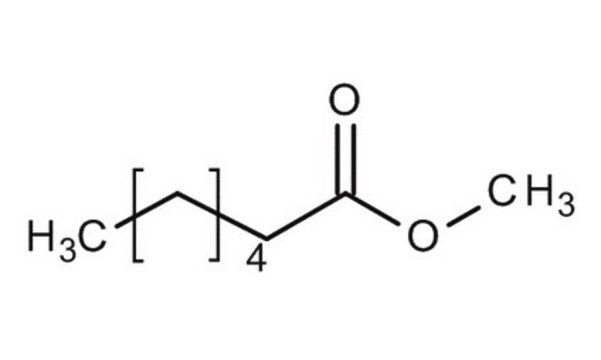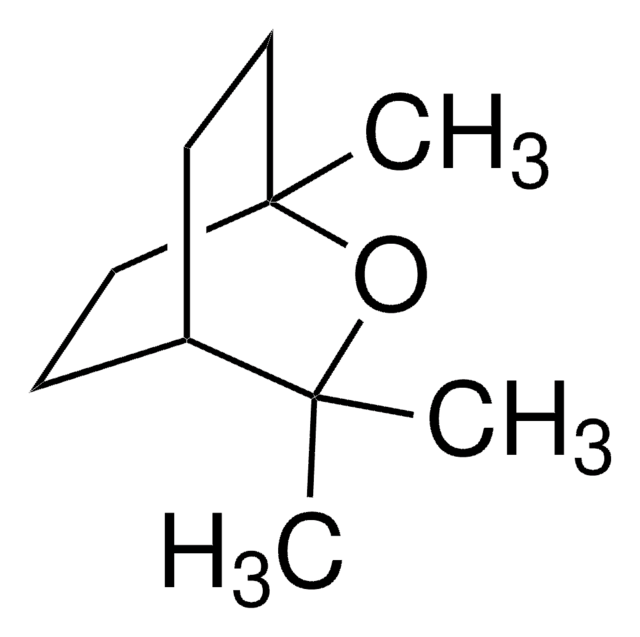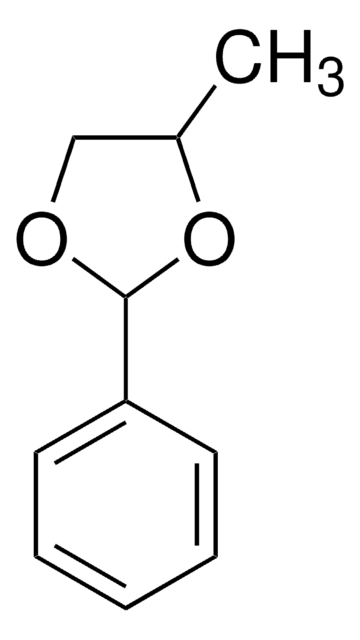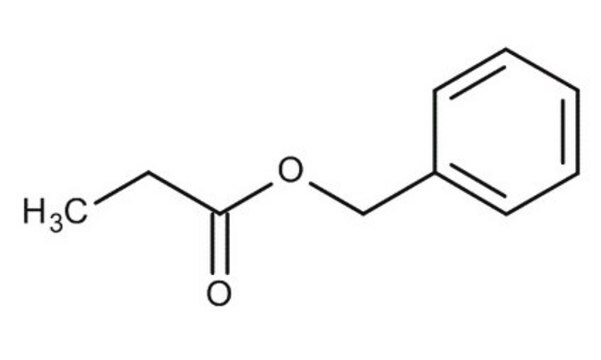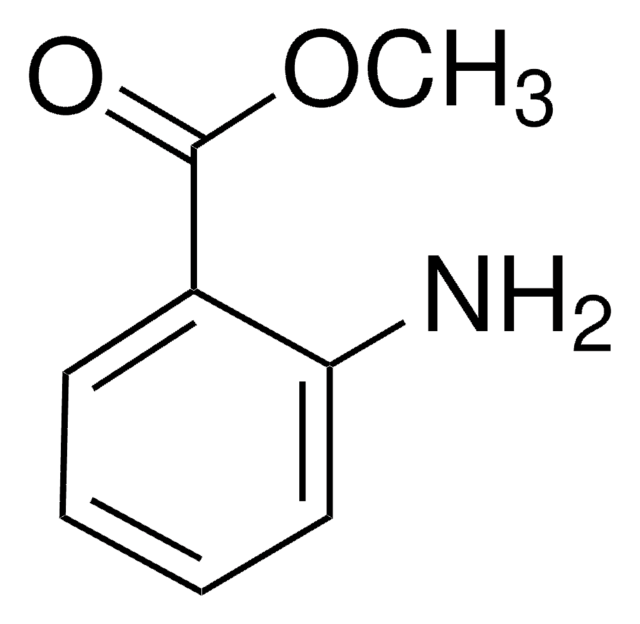W243728
Ethyl heptanoate
natural, ≥98%, FG
Synonyme(s) :
Ethyl enanthate
About This Item
Produits recommandés
Qualité
FG
Fragrance grade
Kosher
natural
Niveau de qualité
Agence
follows IFRA guidelines
meets purity specifications of JECFA
Conformité réglementaire
EU Regulation 1223/2009
EU Regulation 1334/2008 & 178/2002
FDA 21 CFR 117
Pureté
≥98%
Caractéristiques du produit alternatif plus écologique
Less Hazardous Chemical Syntheses
Use of Renewable Feedstocks
Learn more about the Principles of Green Chemistry.
sustainability
Greener Alternative Product
Indice de réfraction
n20/D 1.412 (lit.)
Point d'ébullition
188-189 °C (lit.)
Pf
−66 °C (lit.)
Densité
0.87 g/mL at 25 °C (lit.)
Application(s)
flavors and fragrances
Documentation
see Safety & Documentation for available documents
Allergène alimentaire
no known allergens
Allergène de parfum
no known allergens
Autre catégorie plus écologique
Propriétés organoleptiques
melon; fruity; pineapple; rum
Chaîne SMILES
CCCCCCC(=O)OCC
InChI
1S/C9H18O2/c1-3-5-6-7-8-9(10)11-4-2/h3-8H2,1-2H3
Clé InChI
TVQGDYNRXLTQAP-UHFFFAOYSA-N
Vous recherchez des produits similaires ? Visite Guide de comparaison des produits
Description générale
Code de la classe de stockage
10 - Combustible liquids
Classe de danger pour l'eau (WGK)
WGK 3
Point d'éclair (°F)
165.2 °F - closed cup
Point d'éclair (°C)
74 °C - closed cup
Équipement de protection individuelle
Eyeshields, Gloves, multi-purpose combination respirator cartridge (US)
Faites votre choix parmi les versions les plus récentes :
Déjà en possession de ce produit ?
Retrouvez la documentation relative aux produits que vous avez récemment achetés dans la Bibliothèque de documents.
Notre équipe de scientifiques dispose d'une expérience dans tous les secteurs de la recherche, notamment en sciences de la vie, science des matériaux, synthèse chimique, chromatographie, analyse et dans de nombreux autres domaines..
Contacter notre Service technique
